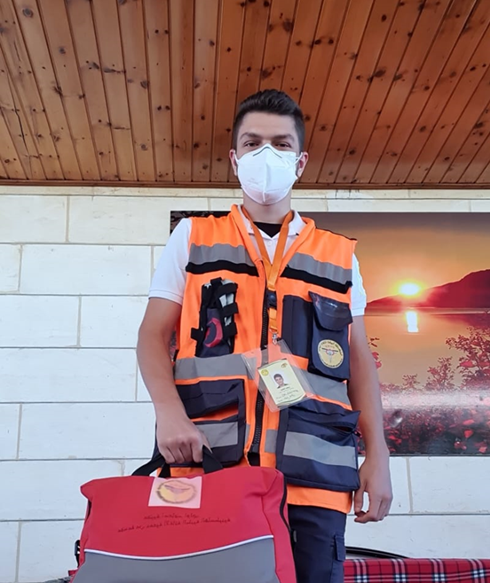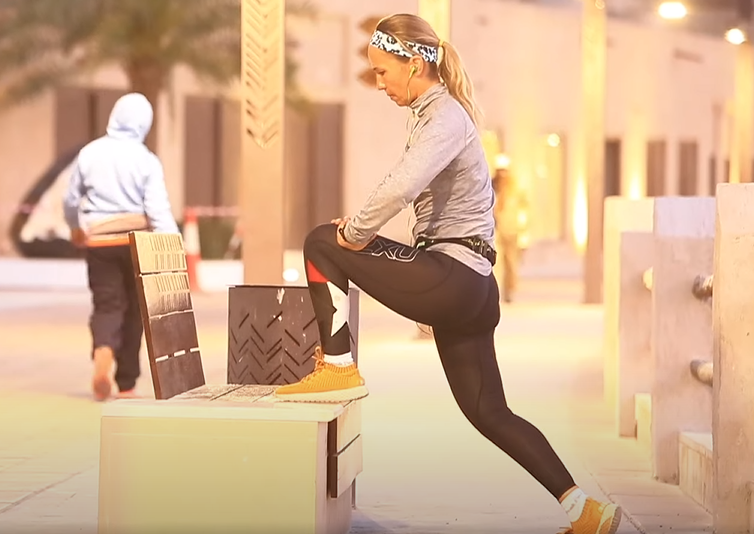Lockdowns Spur Boom of Online Small Businesses in Dubai

The Waggish team along with their original illustrations. From left to right: Dalia Alashrafi, main graphic designer, photographer and editor; Farah Mohamed, creative director; Raghad Murad, art director, and Abdullah Abdel Hadi, business administrator. Courtesy of Waggish, 2021.
Almost one year ago, the world went into lockdowns due to the coronavirus pandemic, and shops, restaurants and entertainment activities halted in Dubai. But the switch to an online life has since sparked creativity and entrepreneurship, even among students at the American University in Dubai.
Raghad Murad, who is studying journalism, got the idea to create “Waggish”, a digital design and merchandising e-company, along with three other AUD students. Waggish offers customized products printed with a chosen design. “During lockdown, we were all free and we were all at home, so it was prime time for us to work hard,” explained the young entrepreneur on a zoom call. “There are so many steps and details that go into starting a business, so we really used that time to have meetings, research properly, and get inspiration.”
For the four entrepreneur students creating their own project was a way to escape the “boring routine” and use this precious time to develop their creativity. “Our first physical meeting was in June, right after the lockdown was lifted, and we pre-launched in October. We were supposed to launch in August, but we struggled with suppliers,” said Murad, Waggish art director.
From friends and family support at the beginning, Waggish kept growing naturally.
The creation of small businesses in Dubai is made easier through the e-trade licensing process: Waggish received a license from the DED café (Department of Economic Development), and opened a concept café in May 2018 in partnership with Dubai Economy and The High-Level Government Transaction Center. It provides business licensing in record time for e-commerce entrepreneurs.
“We offer an e-trade license, which is different from a trade license, for activities that do not require municipality approval and only operate online. For normal trade licenses, you need to get an office, a residency visa and it is expensive,” explains Mohammed Hussain, customer service representative at DED café. For small businesses and online businesses, company founders need to fill a form, answer some questions and get approval before receiving the license. Another condition is for the holder of the license to be an Emirati or GCC national.
“It cost us 1,200 dirhams, and it was on the cheaper end because we only operate online,” declared Abdullah Abdel Hadi, Waggish’s business administrator. “As we all agreed from the beginning that all partners would share an equal amount of funding, I personally got my part from savings that I had due to cutting costs from the pandemic, ” he explains.
A normal trade business licenses costs about 25,000 dirhams according to UAE licensing authorities. It also needs to be renewed annually.
“Our purpose is to ease the creation of small businesses and entrepreneurship, » explains DED cafe’s Hussain. “The process has even been made easier lately through the UAE Pass mobile application.” He said that e-trade licensing has been significantly increasing since the reopening of the café after the end of the lockdown, with more than 100 applications filed per day, both at the DED café and online.
The boom in the creation of small businesses has so far received good responses from customers at a time when a lot of companies and industries were impacted by the pandemic. “I think people in lockdown started to appreciate and support small businesses more, because of the care given to the product and also due to the authentic and special aspect of it,” said Murad, the AUD journalism student.
The young co-founders of Waggish plan to continue to expand their business after graduating. “Now that life is back to normal we don’t want to keep this small business as a side hustle. We didn’t know if it was going to succeed, but now that it’s been four months, we can predict how it will hopefully continue growing in the future.”



